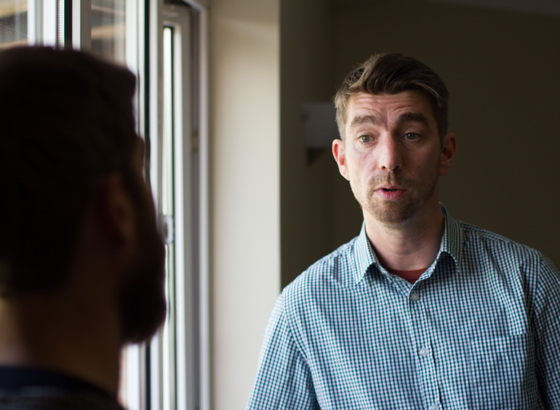Last Updated:
July 28th, 2025
Benzodiazepine Rehab Treatment | What to Expect
Benzodiazepines like Xanax, Valium and Ativan have a quiet power that can quickly shift from comforting to controlling. If you are struggling to break free from benzodiazepines, it’s important to know that specialised benzodiazepine addiction treatment is available.

What is benzodiazepine rehab?
When you enter benzodiazepine rehab, it’s like hitting pause on the chaos so you can truly understand what’s going on inside. The benzodiazepine rehab process will likely begin with supervised drug detox to safely ease you off the medication because many benzos can be tricky to quit without proper support.
Once you are no longer physically reliant on benzos, you will then explore how the medication became more harmful than helpful. You may have had benzodiazepines prescribed for a medical condition, started taking them to relax or even used them as a dangerous form of self-medication. Benzodiazepine rehab provides therapy and other forms of treatment to piece together the puzzle of your addiction so you can work through the issues effectively.
Some of the most common forms of benzodiazepine rehab in the UK include:
- Xanax rehab
- Valium rehab
- Ativan rehab
- Klonopin rehab
Why is benzodiazepine rehab important?
Benzodiazepines uniquely impact your brain, creating an intense physical and emotional dependence. Breaking this can be very hard, which is why so many fail when trying to do it on their own. Benzodiazepine withdrawal can be particularly dangerous, with some of the most intense and longest-lasting symptoms of any addictive substance.
Professional benzodiazepine rehab programmes offer safe withdrawal, reduce the health risks of chronic drug abuse and crucially address the anxiety and emotional discomfort that first led you to benzodiazepine use.
Even after initial treatment, the best benzodiazepine rehab centres continue to support their clients through aftercare. In the short and medium term, this helps with the often turbulent transition from inpatient benzodiazepine rehab to everyday life at home. In the long term, aftercare significantly reduces the risk of relapse, giving you the best possible chance of lasting recovery.
Struggling with an addiction? If you are ready to seek help, reach out to us today, and a member of our compassionate team will help you find the best option for starting your recovery journey.
Private benzodiazepine rehab vs. NHS benzodiazepine rehab
Choosing between inpatient and outpatient rehab really depends on what your life looks like right now and how much support you feel you need.
If your current environment makes it hard to break the cycle (maybe home or work stress is overwhelming), then inpatient benzodiazepine rehab could give you the safe, peaceful space you need to focus on yourself fully.
On the other hand, outpatient care allows you to stay at home and maintain your usual routines, which might feel less disruptive if you have family responsibilities, have a supportive home environment, or can’t easily take a break from work. Both approaches offer therapy, medical oversight and emotional support, but inpatient benzodiazepine rehab is generally more intensive, while outpatient offers greater flexibility and convenience.
Some of the other key differences are:
|
Inpatient benzodiazepine rehab |
Outpatient benzodiazepine rehab |
|
| Where you stay | A relaxing, supervised centre away from daily life | Stay at your own home and visit a rehab centre just for sessions |
| Medical care | Always someone there to support you medically | Regular appointments but less constant care |
| Detox process | Detox is handled safely onsite by professionals as soon as you arrive | Detox is usually arranged separately, potentially with less supervision |
| Therapy style | Daily intensive therapy with group and private sessions | Scheduled weekly group sessions fitting your routine |
| Flexibility | Fully structured routine with minimal distractions | Flexible so it’s easier to balance work or family life |
| Costs and timing | Usually private but with far quicker access | Often NHS-funded but may include waiting times |
What to expect in benzodiazepine rehab?
Stepping into benzodiazepine rehab might feel intimidating at first, but you will quickly realise it’s a welcoming place focused on your comfort and safety. You may have an en-suite or shared bedroom, but the living space will provide a safe haven, so you don’t need to worry about anything. Each day will bring a carefully structured schedule, blending group and one-to-one therapy sessions, with medical professionals regularly checking in to make sure you’re feeling well.
Beyond therapy, you might also take part in different relaxing and creative activities to help you reconnect with your interests and yourself. These may include art therapy workshops, gentle fitness classes or peaceful walks and day trips. Importantly, you will also have quiet moments for yourself, ensuring you have the time to reflect rather than being rushed through recovery.
One of the best things about inpatient benzodiazepine rehab centres is that no two are the same. Do your research carefully, and you will be able to find a centre and programme that is perfect for you.

Therapies involved in benzodiazepine addiction treatment
The best benzodiazepine rehab programmes combine different forms of therapy to address every part of benzodiazepine addiction. Here are some of the most important things you need to look out for in any prospective rehab programme:
Individual therapy
This one-on-one time is focused entirely on you, allowing you to talk honestly about your worries, struggles and hopes. You will also discuss how to handle stress and anxiety differently, creating the chance for real change in your life.
Group therapy
In group therapy sessions, you can speak freely and share your story with your peers and counsellors. These open conversations allow you to relate to others who genuinely get what you’re dealing with.
Behavioural therapy (CBT)
Cognitive behavioural therapy (CBT) sessions give you practical, real-world strategies to deal with stressful situations or anxiety-provoking thoughts without relying on benzodiazepines. Dialectical behaviour therapy (DBT) helps you improve your relationships and use mindfulness to resist cravings and triggers.
Medication-assisted treatment (MAT)
Your medical team might offer benzodiazepine addiction treatment medication to help ease withdrawal symptoms during the detox process. It can make the transition a lot smoother, safer and more comfortable.
Holistic therapies
These may include yoga, mindfulness, or creative therapy, such as art or music therapy. These can help you relax, manage anxiety and feel better emotionally without benzodiazepines.
Family therapy
Family therapy sessions help you break down barriers, encouraging everyone to speak honestly and work together towards healing. This is really important because your family’s support can be a huge bonus during recovery.
Find benzodiazepine addiction treatment near you
If you are ready to take the first steps towards recovery, Addiction Helper is here to support you. We have vast experience with treatment programmes that would best suit your needs. Don’t wait any longer; make today the day your recovery begins.
Our compassionate team are ready and available to take your call, and guide you towards lasting the lasting addiction recovery you deserve.
Frequently Asked Questions
(Click here to see works cited)
- UK Rehab. “Benzodiazepine Addiction | Causes, Symptoms and Diagnosis.” UK Rehab, https://www.uk-rehab.com/prescription-drug-addiction/benzodiazepine/. Accessed 2 August 2024.
- Mind. “Comparing benzodiazepines.” Mind, https://www.mind.org.uk/information-support/drugs-and-treatments/sleeping-pills-and-minor-tranquillisers/comparing-benzodiazepines/. Accessed 28 October 2024.

